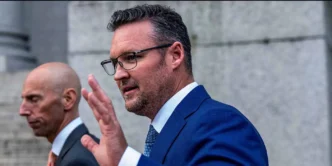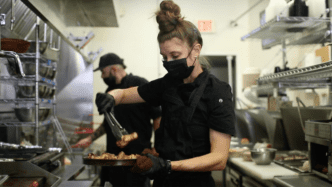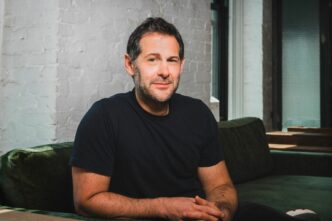Startups thrive on long-term vision, not daily headlines. That’s the message venture capitalists are sending to founders after former President Donald Trump’s latest tariff announcement sent shockwaves through global markets, wiping out more than $3 trillion in value. While VC, investors and operators alike are closely watching the ripple effects. Many seasoned voices in the startup world are advising calm.
“One of the best things about venture-backed startups is that you have to take a ten-year view because that’s how long it takes to build a company that matters,” said Chris DeVore, founding managing partner at Founders’ Co-op. “In that context, the tariff nonsense is mostly just noise.”
Peter Mueller, founding partner at Breakwater Ventures, offered similar guidance in a note to the Foundations startup community in Seattle. “In theory, a high-growth startup succeeds because it finds a thing people want, builds it, and sells it. Not because the Fed decides to cut rates or the administration issued a tariff policy,” he wrote.
But startups operating in sectors like hardware, manufacturing, or consumer goods. Particularly those reliant on global supply chains — may feel the impact more directly.
At Aigen, a Seattle-based agtech startup building autonomous farming robots, co-founder Kenny Lee said the team is staying vigilant. “Our supply chain and manufacturing processes were designed with flexibility in mind, which helps insulate us from market or policy shifts,” he said. “But this recent development is significant.”
Over at Mason, which offers a hardware-software platform for managing enterprise device fleets, executive Jim Xiao noted that while the tariff hike will affect hardware costs, their direct-to-manufacturer approach softens the blow. “We pass those savings along to customers, so the impact isn’t as big as for traditional consumer devices,” he said. Still, market uncertainty is slowing down procurement, particularly in government and healthcare sectors.
Carbon Robotics CEO Paul Mikesell is also keeping an eye on developments but said he doesn’t expect material disruption to their operations. The company, like many in agtech, depends on robust logistics but has options to adjust if needed.
Others are taking a more strategic stance. Amish Patel, founder of Conduit Venture Labs, a hardware startup accelerator, said early-stage founders should revisit their sourcing and logistics plans immediately. “Have contingency strategies in place — alternative suppliers, local assembly, distribution partners. Being reactive won’t cut it anymore,” he said.
Beyond operational concerns, there’s a deeper worry: how this new wave of economic uncertainty could affect startup fundraising and exits.
At a Wharton executive board meeting Thursday, longtime Seattle tech leader and GBK Collective partner Jeremy Korst described a “mood of disbelief.” Many business leaders, he said, are in wait-and-see mode. “No one seems to understand the underlying strategy or how long this will last. The default is to hold back on investments or major moves until things stabilize.”
That kind of hesitation can ripple through the private market. As Crunchbase noted, falling public valuations could drag down private startup valuations. And The Information reported that IPO timelines may be pushed back as a result. With Klarna and StubHub both reportedly pausing their planned public debuts.
Paul Condra, global head of private market research at PitchBook, underscored this point: “The tariff plan brings little relief for the private market ecosystem, which has already been struggling under the pressures of low exit activity,” he said. “The industry now faces additional risk dimensions in assessing tariff exposure across portfolios, while added uncertainty extends the persistent hesitation toward dealmaking and capital deployment.”
For some founders, these developments are a wake-up call. Dan Shapiro, CEO of Glowforge, a 3D laser printer company, said it may be time to move away from outdated cost-cutting strategies. “Relying on overseas production for savings is increasingly risky,” he said. “Today’s AI-driven improvements in domestic manufacturing make local production more competitive and far less vulnerable to global shocks.”
Still, amid all the uncertainty, venture capitalists are reminding startups what matters most.
Peter Mueller’s closing advice to founders was clear: “Keep building. Keep talking to customers. Ignore the noise.”













